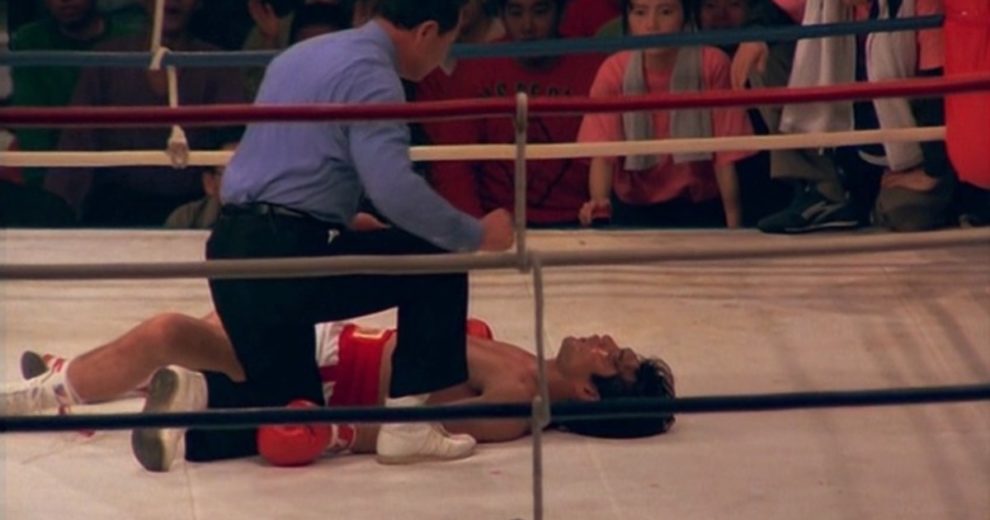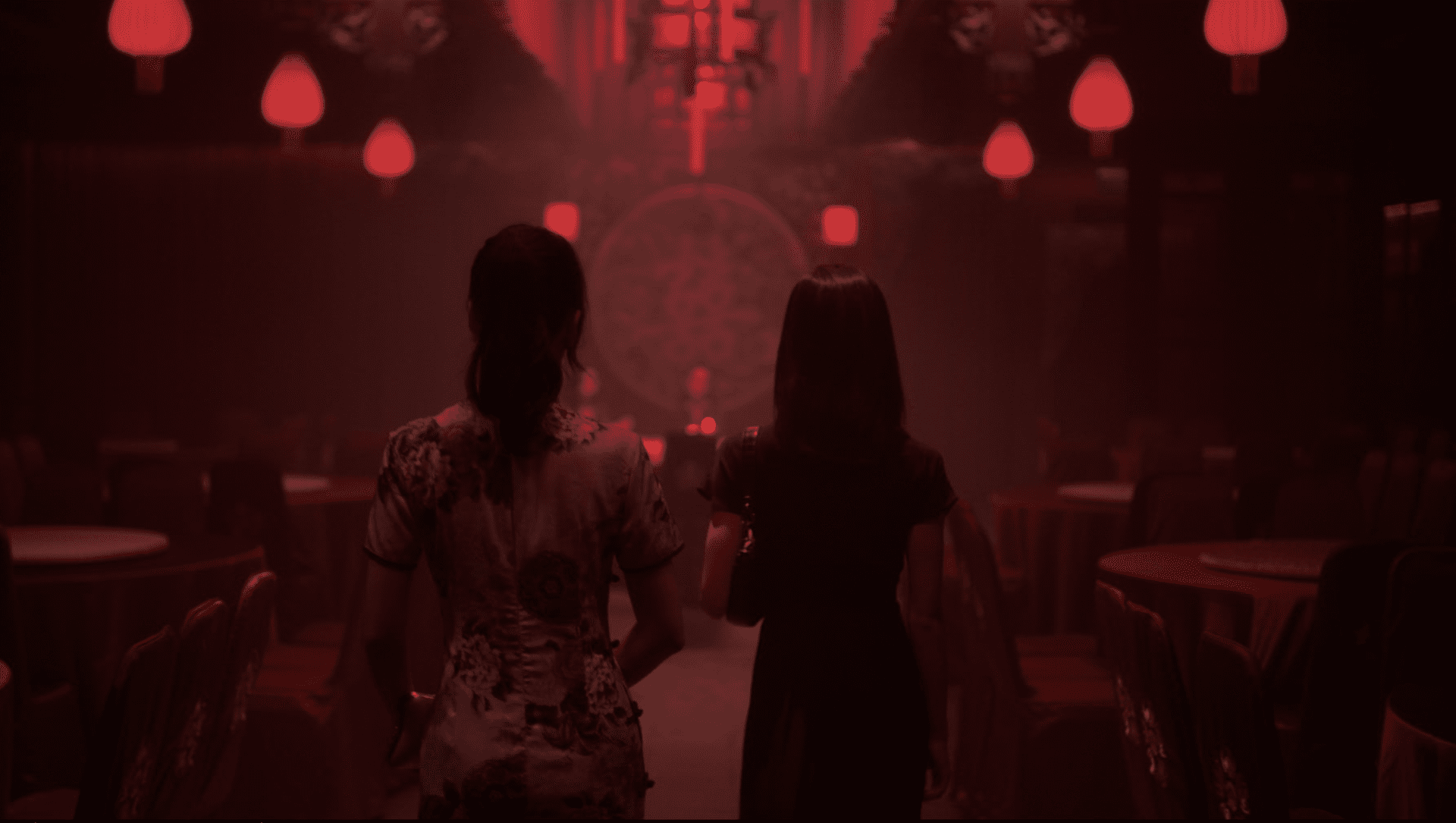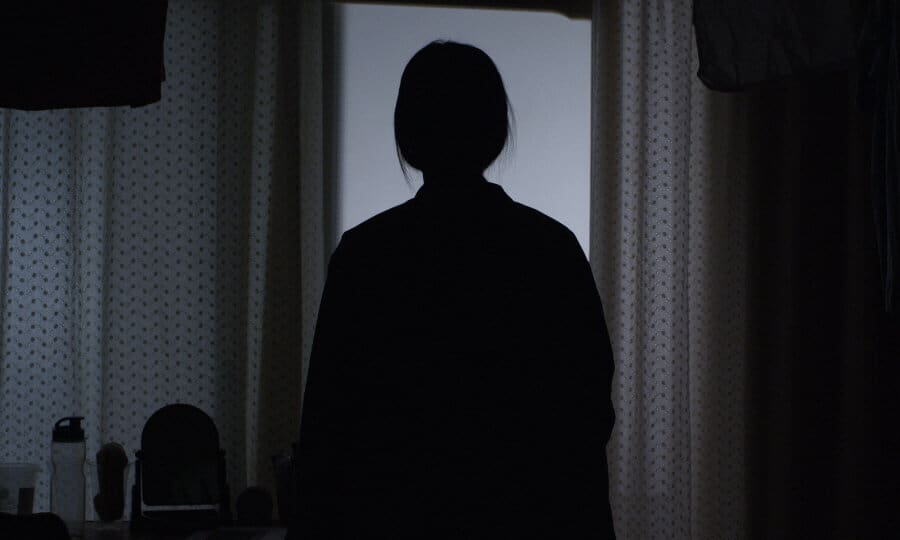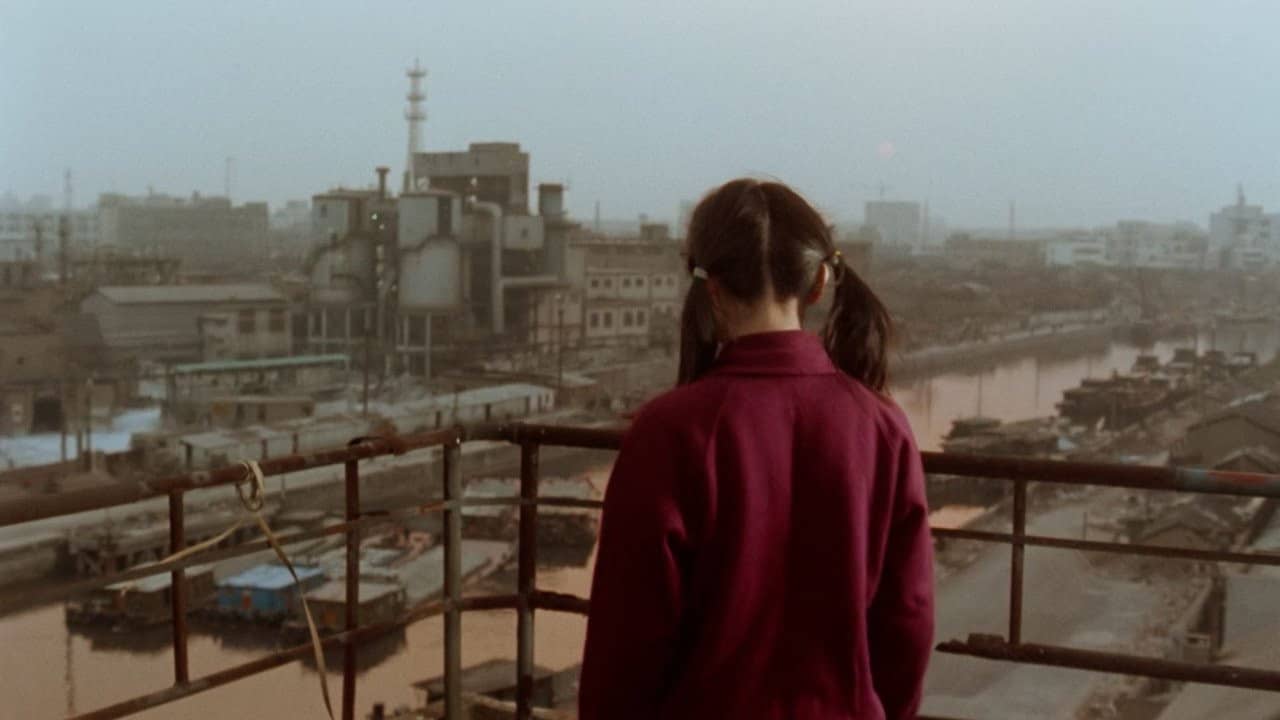No. 82 in Kinema Jumpo's Top 100 Japanese Films of All Time Poll in 1999, “Knockout” was one of the biggest successes in Japan on its year of release, netting awards for direction and cast from the majority of the local competitions.
Eiji Adachi fell in love with boxing from his childhood, eventually following up until he became a champion, always having Takako in his corner, both in the fights and real life, although the romance between them never actually materialized. As the story begins, however, Eiji suffers a shattering defeat, which sends him to the hospital with brain damage. The operation is successful but the doctors inform Eiji that he will no longer be able to fight. Frustrated, angry with everyone around him, even punching all those who try to help him, eventually he decides to open his own gym, with the help of a transvestite promoter, forgetting his promise to both his former coach, Daisuke, and Takako, who is actually his daughter, of returning to their gym as a trainer after he retired.

Makio Sajima, another former boxer, eventually becomes a trainer in Eiji's newfound gym, while trying to help him with his frustration about not being able to fight again. The gym is a huge success in the beginning, but Eiji's attitude becomes worse and worse, eventually alienating everyone around him. As soon as he hits rock bottom however, he decides to change attitude and to fight one last time.
Violent, funny, dramatic, and quirky are few of the contradictory words that can describe both “Knockout” and Hidekazu Akai, who plays the protagonist here, Eiji, in a strange performance that looks “wooden” with the first look, but eventually emerges as highly realistic. As we watch him struggling with the fact that he cannot compete in the ring anymore, his frustration fills the screen, providing one of the most captivating aspects of the narrative, along with the way the people who care for him suffer from his behaviour. At the same time, though, it is quite difficult to feel sorry for him, since his attitude is that of a real a**hole, particularly since he ends up beating everyone around him, including Takako and his elderly parents. Moreover, through his actions and his overall persona, Junji Sakamoto highlights this dark aspect of boxing and sports in general, of how difficult it is for competitive athletes to retire, particularly due to an injury.

Despite its main narrative base, “Knockout” is not exactly a drama, since the comedic elements are quite intense, deriving from both Eiji's attitude, (the karaoke scene will stay in mind) and the various small incidents that take place throughout the movie, lightening the atmosphere all the way to the end, and his meeting with the boxer who beat him.
On yet another element of the narrative, the last part highlights the difficulties of the sport, with Eiji struggling to get to the proper weight for the fight, while training intensely at the same time. The same realism is applied to the majority of the boxing sessions in the movie, with the first and the final one being rather impressive, with the finale cementing this fact in the most memorable way. Norimichi Kasamatsu's cinematography and the editing of the movie help the most in that regard, while the occasionally completely abrupt cuts also add to the comedic essence of the narrative.

One last trait revolves around the secondary parts, with Makio and Takako functioning as catalysts for Eiji's eventual change, being among the few who stay with him despite his idiotic behaviour. Yoshio Harada and Haruko Sagara respectively give great performances, accompanying Akai in the best fashion, with the latter's yells also functioning as a kind of soundtrack for the movie.
“Knockout” is a weird but rather impressive film, that manages to be both brutal and funny, but most of all, highly entertaining, from beginning to end.















